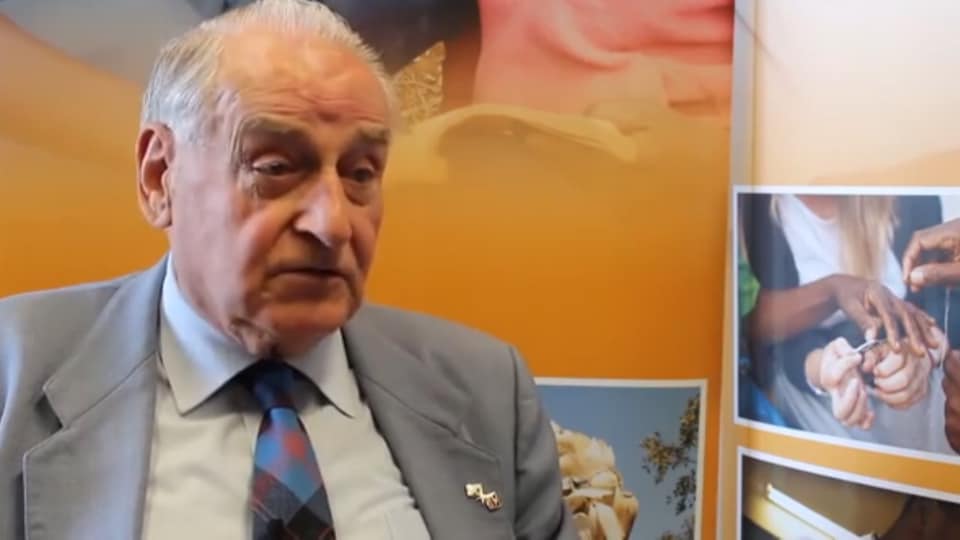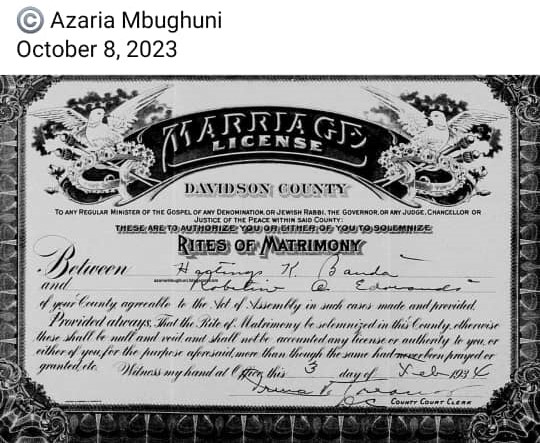It was on the 23rd March 1983 when Dr. Attati Mpakati was assassinated in cold blood in Harare, Zimbabwe by Dr. Kamuzu Banda’s hitmen.
As a leader of the Socialist League of Malawi – LESOMA, the sad news of his gruesome murder was not only born chilling to his followers, but to many Malawian exiles who detested Dr. Kamuzu Banda’s dictatorship and his brutal regime.
However, this did not deter anti-Banda campaigners from fighting for a better and free Malawi. It was a matter of time when they would strike a death blow at the barbaric regime.
And that time availed itself in 1991 with the introduction of multi-party democracy in Zambia.
When Dr. Fredrick Chiluba took over the reigns of power from Dr. Kenneth Kaunda, there was a general sigh of relief regarding freedom of speech and assembly in Zambia.
The youth from LESOMA and Malawi Freedom Movement – { MAFREMO} took advantage of this wind of change.
This was at Kansenshi in Ndola at the funeral of their colleague and commander of the armed wing of LESOMA, Tom Sowyer Phiri.
It was at this funeral gathering the idea of a pressure group to campaign for the introduction of multipartism in Malawi was mooted. This was in December, 1991.
After consultations with elders, one of them Frank Jiya, a meeting was arranged and subsequently was held in Garneton, Kitwe at the residence of Mr. Jiya.
Amongst the people who came from Lusaka were the late George Akogo Kanyanya, the late M’pumila, the late Chief Chikuse and Edmond Jika.
The discussions went on throughout the night and ended in the late afternoon the following day which was a Sunday. A consensus was reached and a pressure group was born, it was called United Front for Multiparty Democracy in Malawi (UFMD).
It is important to note that the people who met at this meeting came from different political groupings.
The challenge was to accommodate the views of each one of them, hence it took long to reach a compromise.
The interim leadership of the group comprised of Mr. Kanyanya as Chairman, Mr. Frank Jiya as Secretary, his Deputy was Frank Mkandawire, Mr. Dzabala was Treasurer, his Deputy was Edmond Jika.
A communique was distributed to embassies in Lusaka on the formation of a new pressure group to campaign for multiparty democracy in Malawi. And the world, particularly Malawians in exile got the news of the group’s existence through the British Broadcasting Corporation – BBC.
It was Edmond Jika who was interviewed on the formation of UFMD by a BBC reporter and the response of the interview was overwhelming.
Prominent Malawian businessmen, lawyers, medical doctors and ordinary Malawians joined the group.
One Malawian businessman who is late now offered his hotel facilities for our meetings. Others surrendered their vehicles each time we travelled for meetings.
The group hit the ground and it didn’t take long before Doctor Banda felt the heat of UFMD.
It was at the Commonwealth Heads of state Summit in Harare in October 1991 where Frank Mainga Mkandawire and Edmond Jika managed to sneak in posters denouncing Dr Kamuzu Banda’s dictatorship and calling for plural politics in Malawi.
Shocked and extremely embarrassed, Dr Kamuzu Banda fell down in the summit and had to be assisted by other heads of states and some officials to stand up.This was the beginning of the dictator’s downfall.
Through the publicity committee of UFMD, we were able to infiltrate posters and leaflets into the country through Malawian traders who came to Lusaka for business.
THE FAMOUS LUSAKA CONFERENCE:
The United Front for Multiparty Democracy had now become one big platform to fight the one party regime in Malawi.
Malawians felt the need for the way forward for Malawi. A committee of three was appointed to organize a conference where Malawians in exile and those inside the country would come together and strategize on the future of Malawi.
The committee comprised of the late Dr. Mapopa Chipeta, the late Frank Mkandawire and Edmond Jika.
After looking at the proposal a German foundation, Friedrich Ebert Stiftung (FES) agreed to fund the three days conference at Lusaka’s prestigious Inter-Continental Hotel.
More than 120 Malawians from Zambia, Zimbabwe, Tanzania and Malawi, converged at the Intercontinental Hotel from 20-22 March 1992.
THE CHIHANA CONNECTION AND THE AIR TICKETS:
Ten air tickets were sent to Lilongwe through the Southern Africa Trade Union Coordination Council SATUCU where one of the invited delegates Mr. Chakufwa Chihana was the Secretary-General.
The organizers of the conference, the three man committee was very clear on the distribution of the tickets.
The tickets were to be evenly distributed amongst trade unionists, business associations, academicians and student union movement. For instance, the former Republic President Dr. Bakili Muluzi was invited as Chairman of the Muslim Association of Malawi and the late Chihana as a trade union leader.
It is also important to clear the air here that the conference was postponed because of the political happenings in Malawi. This simply is not true.
At no time was the conference date rescheduled. The conference date was dependent upon the founders FES who had to wait for the approval from their headquarters in Harare.
Back to Mr. Chihana and the tickets. Why were the tickets not distributed to the intended delegates.When differences emerged at the Lusaka conference between Mr. Chihana and UFMD leadership, there were those who speculated that Mr. Chihana deliberately ignored to distribute the tickets because he had a hidden agenda, eliminate any would-be competitor from Malawi at the conference.
It became clear the ploy to impose him as leader of UFMD was hatched way before the conference by Frank Mkandawire and Dr. Mapopa Chipeta. And how did Jika not notice this?
According to him, he said each time Dr. Chipeta spoke to Mr. Chihana on the phone, it was in Tumbuka and Jika had very little understanding of the language.
However, when he noticed there was something strange in the conversation with Mr. Chihana he informed the Chairman, Mr. Kanyanya.
And after the delegates refused to endorse him as leader of UFMD, Mr. Chihana together with Dr. Mapopa Chipeta, Frank Mkandawire and others stormed out of the conference and went to form what they called an Interim Committee for Democratic Alliance (ICDA) which later on became Alliance for Democracy (Aford).
Mr. Chihana had a positive media coverage in the Zambian media and BBC, partly due to the perceived notion that what President Chiluba, a trade unionist achieved in Zambia could be replicated in Malawi by another trade unionist.
Both the Zambia and foreign media portrayed Mr. Chihana as a liberator who had been mandated by Malawians in exile and he was returning to Malawi from exile to go and champion for multiparty politics in Malawi.
It was this media publicity which made Mr. Chihana to take Malawi by storm.
Majority of Malawians believed Mr. Chihana, had returned from exile in Zambia, when in actual fact he had been living in Lilongwe where he was Secretary General of SATUCC.
_To be continued_ .



One Response
Your point of view caught my eye and was very interesting. Thanks. I have a question for you.